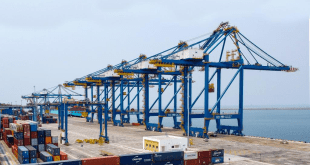VOA | YAOUNDE, CAMEROON — Cameroon’s military has taken over construction of roads linking its troubled western regions to Nigeria after what it said were repeated separatist attacks. The military says the rebels abducted eight people this week, including road workers, who were abandoning work sites due to insecurity.
Cameroon says scores of government troops and road construction equipment of its military engineering corps are moving from Yaounde to at least six western towns and villages on the border with Nigeria.
The equipment that departed the capital Tuesday includes loaders, bulldozers, dump trucks and compactors, the military says.
Defense Minister Joseph Beti Assomo told parliament this week that President Paul Biya ordered the military engineering corps to take over construction of the road linking the Kumba and Ekondo-Titi districts.
Assomo said a majority of civilian road construction engineers abandoned work following repeated armed attacks and destruction of equipment by separatist fighters.
He said army forces are capable of taking over the work.
Assomo said besides its regular participation in combat operations, forces of Cameroon’s military engineering corps are trained and have a wide range of experience in constructing public edifices, including buildings and roads. He said only Biya, who is commander in chief of the armed forces, authorizes the military to construct roads in areas deemed necessary or where there are armed conflicts.
The road is part of the government’s efforts to reconstruct the western areas devastated by the separatist conflict that has claimed 3,500 lives and displaced 750,000 people.
The government says eight civilians including road construction workers were abducted by separatist fighters from a bus on Monday in Ekondo-Titi.
Separatists have claimed responsibility for the abductions but have not made any requests for ransom, as is usually the case when workers are kidnapped in Cameroon’s western regions.
Mukete Ekoko, a traditional ruler in Kumba, said when constructed, the road will increase trade between Cameroon and a market of 180 million people in Nigeria and reduce poverty in border towns and villages. He said he was happy that the military is taking over the construction of the road.
“This is the most important project for the time being, to take us to the next stage and that is why we the chiefs, we take it so important, we take it so seriously and we want the authorities to know that we are thankful,” he said.
The Cameroon military says civilians should denounce fighters hiding in the community and harassing civilians. The military says it will assure the safety of people and property in the area and complete the 60-kilometer road in less than three months.
Njume Peter Ambang, a lawmaker from Cameroon’s Southwest region where Kumba and Ekondo-Titi are located, said youths who join separatists because they are unemployed will have opportunities to sell their crops when the road is developed.
“We have taken the engagement to tell these boys who are disturbing this road that, please, enough is enough, to please not disturb this road again,” he said.
English-speaking armed groups have been fighting for the secession of two western regions from the rest of Cameroon and its French-speaking majority since 2017.
The last major move by Cameroon’s military to take over the construction of roads was on the northern borders with Chad and Nigeria in 2018 after Chinese contractors abandoned the work following repeated attacks from armed Boko Haram fighters.
 CameroonOnline.org Cameroon news, Actualité Camerounaise, live Web TV & Radio, World News and a lot more
CameroonOnline.org Cameroon news, Actualité Camerounaise, live Web TV & Radio, World News and a lot more




Great Move!